Pawscessories is reader-supported. When you buy via links on our site, we may earn an affiliate commission at no cost to you.
Learn more.
Is it too late to socialize my dog? This is a question you might be asking yourself.
In short, the answer is no. It’s never too late to socialize a dog! Unfortunately, many people believe that once their dog reaches a certain age, it’s too late, “they are set in their ways,” as some people will say. This isn’t true at all!
Dogs need socialization throughout their entire lives to live a well-rounded life. Without socialization, they will never become well-adjusted, friendly members of society.
Rescue dogs, adult dogs with a history of trauma, reactive dogs, and shy dogs all need socialization in order to heal, develop confidence, and learn how to function in the human world.
In this blog post, we will discuss the importance of dog socialization, why it’s never too late to start, and how you can properly socialize an adult dog or one with a history.
Let’s dive in.
Table of Contents
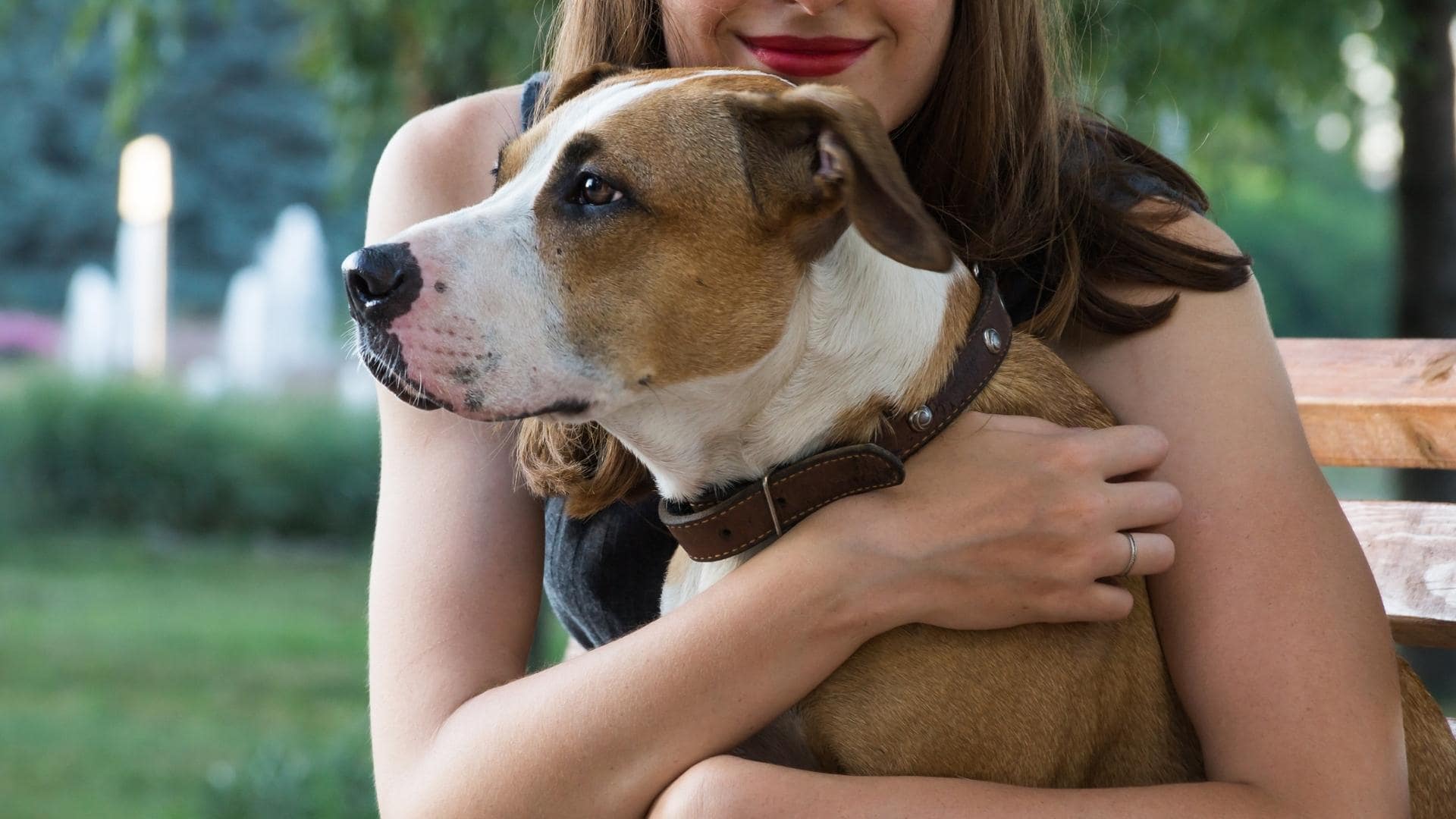
What Is Dog Socialization?
Dog socialization is the process of exposing your dog to various people, animals, places, and experiences in a positive way.
It is important to socialize your dog early on in life, but it is never too late to start!
Dogs not properly socialized can become fearful or anxious around new people, other dogs, and experiences, leading to aggression or other behavioral problems.
Some dogs can be more susceptible to anxiety, depression, and stress-related illnesses if they do not have a good social foundation. In addition, there are dogs more susceptible to being protective and aggressive towards other dogs.
Regardless, dogs require confidence building through experiences with other dogs, people, environments, and situations to ensure they can be well-rounded dogs that thrive in society.
Does My Dog Need To Be Socialized?
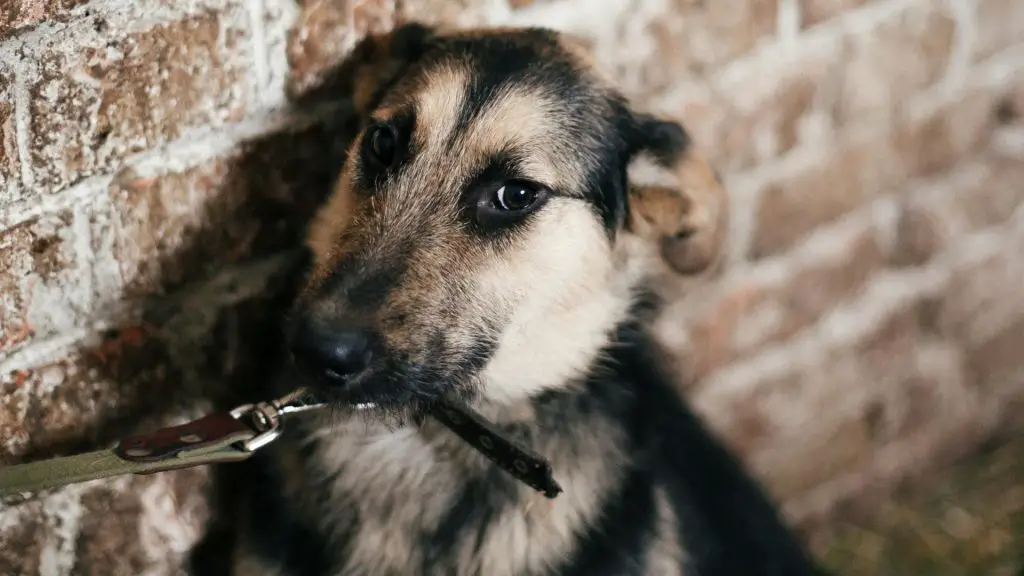
Any dog training or canine behaviorist will tell you that socialization is one of the most important things you can do for your pup – regardless of age!
Psychologically socialized dogs tend to be more confident, outgoing, and less fearful or anxious in new situations. They’re also better able to cope with changes in routine (such as a move to a new home) and tend to be more trusting and less suspicious of strangers.
In short, socialization is a critical part of your dog’s development. It helps them become a well-rounded, happy, and healthy member of society.
Without socialization, your dog might as well be a wild animal – they will be fearful of anything and everything new that they encounter.
Socialization is especially important for rescue dogs or those with little exposure to the world outside their home. They will lack confidence and be in a constant state of reactivity and fear.
Is It Ever Too Late To Socialize A Dog?
No, It’s never too late to start socializing a dog. However, as time goes on without socialization, habits solidify and become hard to correct.
The longer you go without socializing a dog, the more difficult it becomes to break them out of their bad habits. It’s the same reasons people say, “you can’t teach an old dog new tricks.” They say it because it’s hard to teach something that seems “set in their ways.” However, I’m here to tell you it’s doable!
Older dogs that have not been properly socialized will likely be more resistant to change. Still, with patience and consistency, you can socialize an older dog. It may just take a little longer.
What Happens If A Dog Isn’t Socialized?
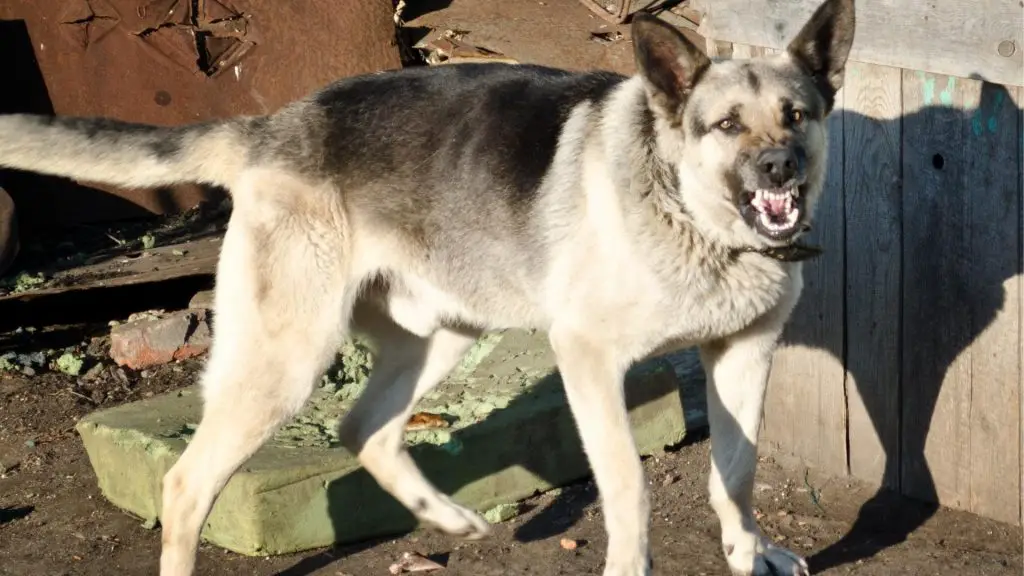
If dogs aren’t properly socialized, they could develop bad behaviors around strangers, other animals, and new experiences.
Dogs that aren’t socialized may be skittish or fearful when meeting new people. They may bark, growl, or try to bite when they encounter new animals. And they may have a hard time adjusting to changes in their environment or routine.
Dogs lacking socialization can also be more prone to anxiety, depression, and stress-related illnesses. In addition, dogs that aren’t socialized are more likely to be protective and aggressive towards other dogs and, in some cases, people.
A common behavior seen in unsocialized dogs is reactivity. A dog perceives something as a threat and reacts aggressively or fearfully. Reactivity can be directed towards other dogs, people, bikes, cars, skateboards, and anything else the dog perceives as a threat.
Reactivity is often the result of a lack of socialization. It can be one of the most difficult behaviors to change.
Here is a list of common behaviors you may encounter from dogs that are not properly socialized:
- Biting
- Pacing
- Barking
- Shaking
- Growling
- Snapping
- Cowering
- Trembling
- Leash Pulling
- Excessive Shedding
- Destructive Chewing
- Hiding From People or Other Animals
- Aggression Towards Dogs or People
Depending on the dogs, lack of socialization can result in a wide range of behaviors from mild to severe. If the dog was socialized with people but not other dogs, they might only develop bad habits towards dogs.
The Benefits Of Socializing Your Adult Dog
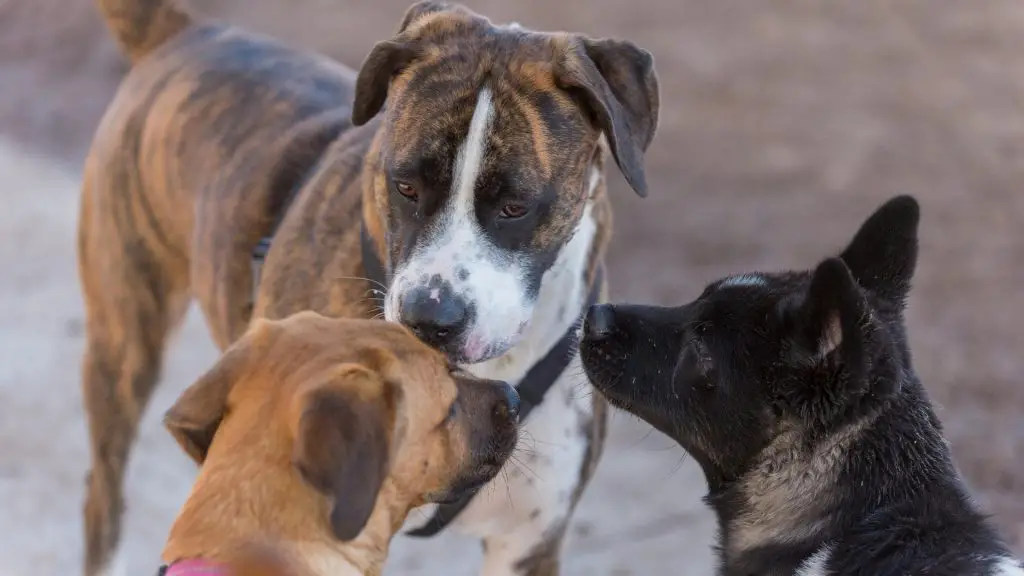
Now that we’ve seen some of the negative ramifications of not socializing your dog let’s look at some of the benefits!
Socialization can help build your dog’s confidence, make them less fearful of new experiences, and help them learn to trust people.
In addition, socializing your dog can help them develop better manners around other dogs and people. For example, they will be less likely to jump on people, pull on the leash, or bark excessively when properly socialized.
Socialization can also help reduce stress and anxiety in dogs. Dogs that are properly socialized feel more secure in their environment and are less likely to experience fear or anxiety when confronted with new situations.
Finally, socializing your dog can help create a bond between you and your furry friend. When you socialize your dog, you’re teaching them to trust and rely on you. This can help create a strong bond between you and your dog that will last a lifetime.
Here is a list of some benefits form socialization:
- Reduces Fear and Anxiety
- Builds Confidence
- Improves Manners
- Creates a Strong Bond
- Helps Dogs learn to Trust People
- Decreases Reactivity
- Eliminates Aggression
- Lessons Destructive Behaviors
- Reduces Chewing
- Eases Separation Anxiety
There are endless benefits that come with socializing your dog. As you can see, the benefits greatly outweigh any cons. And these are just a few of the many benefits!
So how would you go about socializing an older dog?
How To Socialize An Adult Dog (7 Tips)
If you thought it wasn’t possible to socialize an adult dog, think again. It is possible, and it’s not too late to start!
When it comes to socializing an adult dog, most are not socialized because the owner never got around to it, the dog wasn’t properly socialized, or they were adopted/rescued.
In addition, some owners are simply scared to bring their dog out in public because of the humiliation their dog may cause. This brings me to the first tip on our list:
Get Over Your Fear Of Embarrassment
For some, this first tip will not apply.
However, for those of you who have had your adult dog for most of their life and haven’t socialized them because you are embarrassed by their behavior, it’s time to step up.
When socializing a dog, they are going to misbehave and embarrass you. That’s the only way you can correct their behavior and make progress.
This is a common reason people refuse to socialize their adult dogs. They fear embarrassment, and I understand where they’re coming from. I’ve been there before too.
I remember when my dog, Enzo, used to bark and lunge at every single dog we saw on walks. I was so embarrassed that I often just avoid taking him on walks altogether. It wasn’t until I realized that the more I avoided socializing him, the worse his behavior became.
I knew I had to do something, so I started slowly introducing him to new environments, people, and animals. He is a completely different dog now. The work I put into socializing him was worth all the embarrassment he put me through in the beginning.
Suppose you cannot overcome your fear of being embarrassed by your dog’s bad behavior. In that case, you won’t stay consistent, and you will never be able to socialize your dog.
Identify Triggers
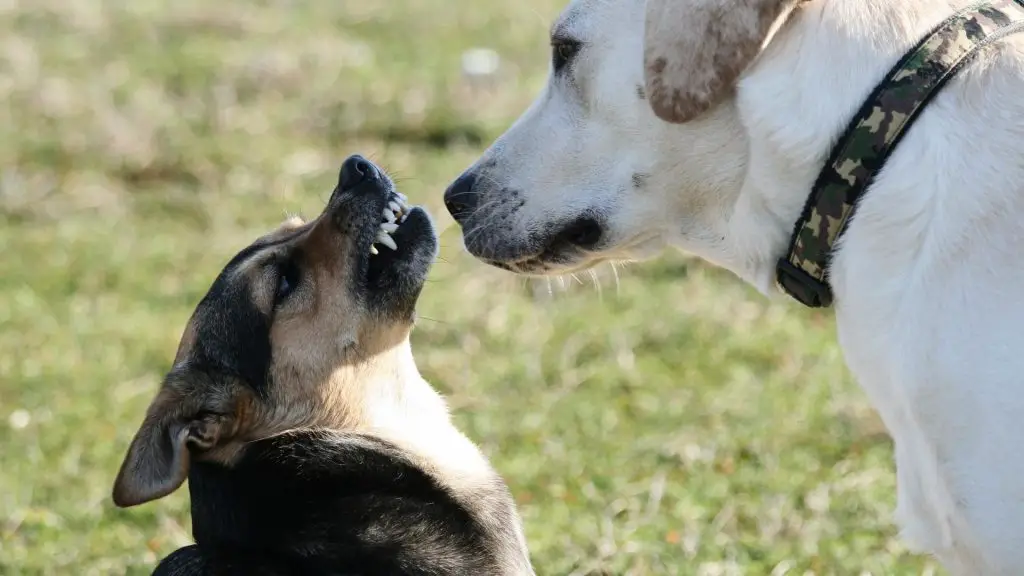
To socialize an older dog, you need to understand their triggers. You want to know the things that can set them off and make them react.
For example, suppose your older dog is reactive to other dogs. In that case, you will need to slowly introduce them to other dogs in a positive and non-threatening way.
In addition, you could have a dog that is scared of people or cars.
Whatever might trigger your dog, you want to be aware of it so you can work towards desensitizing them to their triggers.
This means slowly introducing them to the things that trigger their fear or reactivity. Positive socialization will allow them to become confident and desensitized to triggers, but it starts with knowing what they are.
Once you know what they are, you can start to train them in social settings so they can be well-behaved, socialized dogs.
Know How To Train Them
Socialization can never work if owners do not know how to properly correct bad behavior and reward their dogs.
The training system you can follow to socialize your adult dog is called counter conditioning. We want to use counter conditioning because adult dogs usually have some bad behaviors or triggers they have developed.
They are not puppies with a clean slate, so we need to break bad habits and develop new good ones.
Here are the basics of counter-conditioning to help socialize your dog:
- Know your dog’s triggers.
- Pair their trigger with something your dog enjoys. This can be high-value treats (cheese, chicken, meat, etc.), toys, or anything else you know they love.
- Anytime your dog experiences the trigger, we want them to feel happy. They will remove the negative associate and replace it with a positive.
Now, if your dog ignores the treat and reacts, you must move further away from the trigger. You want to be at a distance where your dog can see the trigger but not react to it.
You also might need to use a higher value treat if they are still reacting. But, again, this takes time and patience, but eventually, they will associate their triggers with something positive instead of negative.
For example, if your dog is scared of thunder, quietly play thunder sounds, then simultaneously give them a high-value treat or something else they really like. Over time you can increase the volume.
This will help desensitize your pup to the sound that causes them to act out. Of course, this process is the same for any trigger.
Set Up A Socialization Routine
Now that you know your dog’s triggers and a training method, we can develop a socialization plan and training structure.
You always want a plan when socializing your dog. Especially if you know your dog is reactive or has had bad experiences in the past.
For any successful socialization strategy, a schedule and routine are the ultimate keys to success. Dogs thrive on consistency, so set up a routine and stick to it. A good idea is to create a plan to socialize your dog for at least 30 minutes a doy or every other day. Whatever you can do consistently.
Remember, start slow and work your way up. If your dog needs socialization with people or dogs, start by walking in areas with people and other dogs. Start in less populated areas and work your way up to more populated areas.
Then as your dog becomes more accustomed to people and dogs, you can start to directly introduce your dog to people and dogs. This can be as simple as having a friend join you on a walk.
Get The Right Equipment
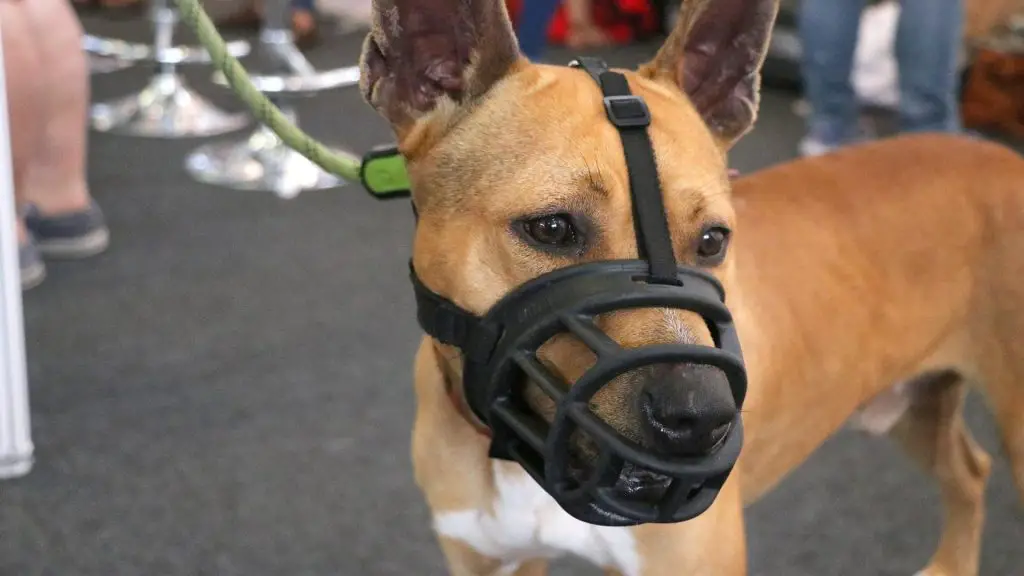
The right equipment allows you to better control your dog and their emotional state when socializing a dog. You want these experiences to be positive so having proper control of your dog is important.
How your dog responds to their trigger will depend on what tools you will need to help.
If your dog is reactive on walks and tends to bark, pull, and lung, you might want to consider a gentle leader or easy walk harness. These items help control your dogs pulling on leashes and give you better control. When dealing with reactivity in your home, you can use a crate.
A crate will help reduce reactivity and ensure safety for your dog and any other dog or person that may cause their reactivity.
In addition, if your dog has tried to bite in the past a muzzle might be the best option.
Don’t Overwhelm Your Dog
Regarding socialization, it’s pretty obvious what has to be done. A dog just needs to be put into new experiences to learn how to behave properly.
If you know your dog is sensitive to certain things, the goal is to desensitize them without overwhelming them.
For example, if your dog has not been socialized with other dogs, they might be reactive towards them. So you want to slowly bring them around more dogs but at a distance. Then over time, you can close the distance.
In general, you want to start slow by simply taking them on walks in different neighborhoods, walking near parks, other dogs, etc. Then, if your dog does well on walks, you can start taking them to new places like the beach, hiking trails, or even doggy daycare.
The key is to take things slow and not overwhelm your dog. You want them to have positive experiences with people, dogs, and places so they learn these things are a good thing.
Control The Environment
When socializing your dog, you want to make sure you have control over the environment. Of course, this goes hand in hand with not overwhelming your dog.
You want to be able to set your dog up for success by controlling the environment. If your goal is to socialize them in a positive environment. Any negative experience will set you back.
Your dog should only be put in situations where they can be successful. This might mean avoiding high-traffic areas or only going to the dog parks during non-peak hours.
You also want to make sure you are always in control of the situation. For example, if your dog is not ready to be around other dogs, don’t force it. The same goes for people. If your dog is not ready to be around many people, only put them in situations where there are only a few people.
You want to ensure the environment is set up for success so your dog can learn that these things are not something to be scared of.
Never Respond With Anger & Frustration
Be patient and tolerant of your dog when being socialized. If your dogs being reactive or misbehaving, it’s not their fault. They are in an emotional state and need your calm and understanding to help get them through it.
Rage, anger, and frustration will only aggravate the situation and make it worse. If you get mad and frustrated, it’ll often lead to yelling, yanking your dog when they pull on the leash, etc.
These things can reinforce their behavior and makes things worse. For example, if your dog is barking at another dog and you start yelling at them, your dog has no idea why you’re yelling.
In fact, they might actually think you’re yelling with them, which means it’s okay for them to react as they are.
Keep it positive and avoid punishment. Only reward your dog when they act the way you want them to and when they misbehave, correct them while remaining calm and tolerant.
It’s not that your dog is bad. Dogs are just reacting in a primal way. They are noticing potential danger and are ready to either fight or take flight.
Get Professional Help
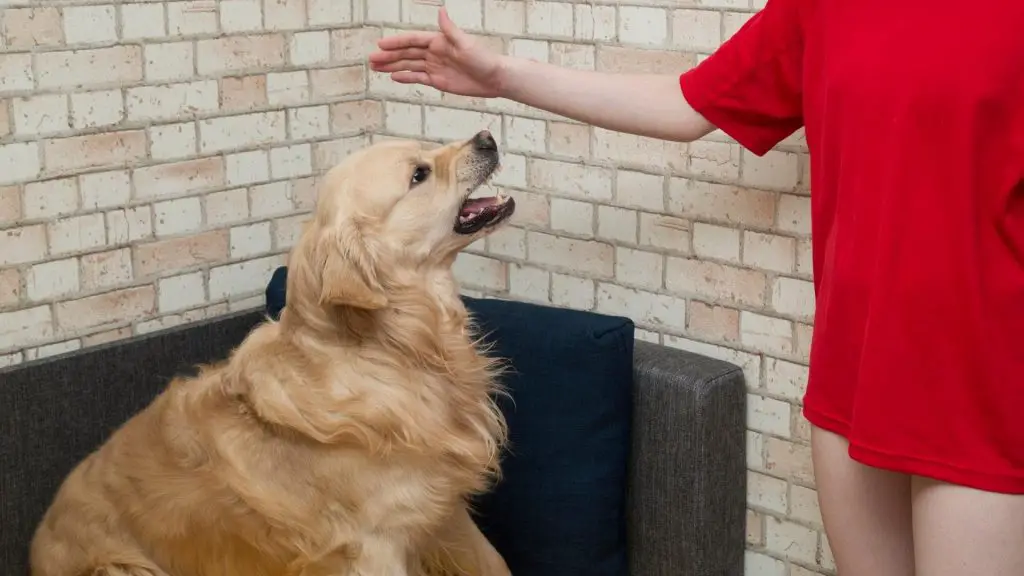
Depending on how difficult it is to socialize your dog really comes down to how reactive they are. Reactive dogs trying to be socialized can be a nightmare at times.
If you struggle to make any progress, the fastest way to solve this problem is to go to the experts. Although it can be quite expensive to have trainers take your dog, it can be one of the best choices for some.
Another option is to get specialized dog training online. It’s really cheap but requires you to put in the work.
Is It Hard To Socialize An Older Dog?
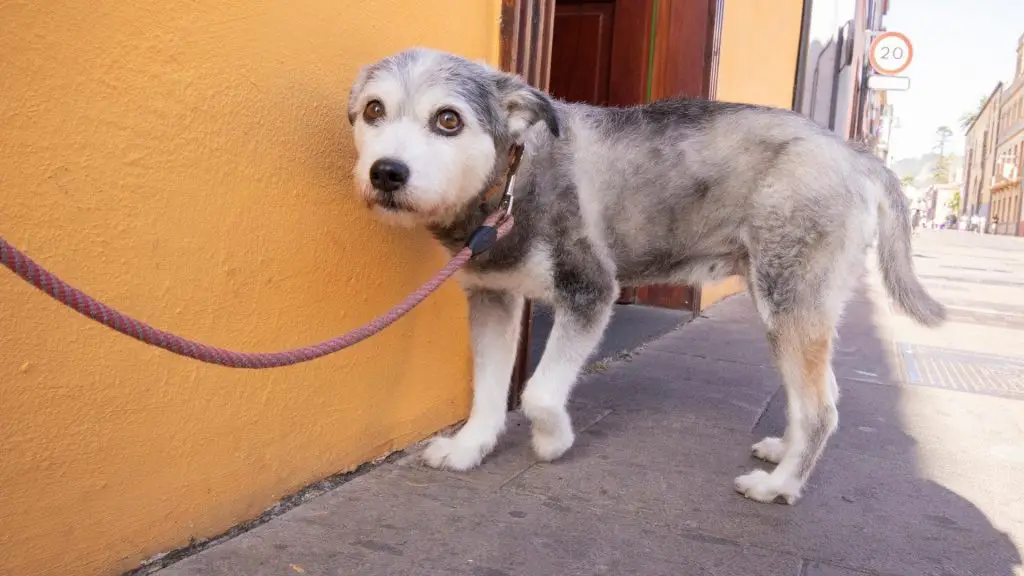
Yes, socializing an older can be difficult. You are basically starting a process called counter conditioning. In simple terms, you are replacing their bad behaviors with good ones. However, to do this, you must first remove their bad habits before you can train them good ones.
So, since you have to remove the bad habits before training them good ones, it’s harder to socialize an older dog than a younger one. In addition, the older the dog, the more solidified the bad habits become, making it harder to retrain them onto good ones.
Other Frequently Asked Questions
Is It Too Late To Socialize A 7 Month Old Dog? 1 Year Old? 2 Year Old?
No, it’s never too late to socialize your dog. Dogs can learn at 7 months old, 1-year-old, 2 years old, etc. However, the older they are, the harder it becomes to socialize them. This is because as they age, they develop bad habits that become solidified and more difficult to change. So you basically have to untrain the bad behaviors and then train them good ones.
Final Thoughts
Many dogs owner may become frustrated and fed up with their dog’s bad behaviors. However, instead of giving up on them, understand that it’s never too late to socialize a dog.
Just because a dog is older doesn’t mean they can’t change.
With proper training, understanding, and patience, any dog can be socialized no matter how old.
If you’ve followed the step in this article and are still struggling to socialize your dog, your best bet is to reach out for professional help.
Some many experts and trainers can help you socialize your dog properly. In addition, online programs can provide you with the necessary tools and resources to socialize your dog effectively.
Remember, it’s never too late to socialize your dog. With the right training and understanding, you can socialize any dog, no matter how old they are.
Other posts you might find interesting:
7 Simple Strategies To Help Quickly Calm A Reactive Dog
7 Ways To Eliminate Your Dogs Anxiety, Shyness Or Fear
Do Dogs Get Tired Of Barking? How To Stop Excessive Barking?
